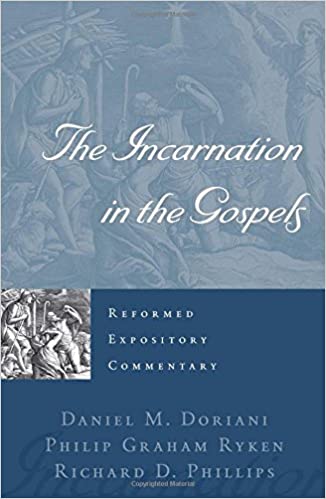A Brief Book Notice from Books At a Glance
From the Preface
This book presents twelve biblically and theologically grounded Christmas messages. The authors explore the canonical teaching on the birth of Jesus Christ in the gospels of Matthew, Luke, and John (Mark says nothing of Jesus’s birth). Together these passages cover most major issues regarding the incarnation: the connections between Jesus’s birth and the Old Testament promises, the birth itself, the joy and the opposition that the birth aroused, the genealogy of Jesus, and the titles of the Lord, to name a few.
Matthew, Luke, and John provide three distinct accounts of the core events surrounding the birth of Christ and their significance. While the Gospels overlap at many points, Matthew leads us to contemplate the connection between Jesus and the people of Israel through the genealogy, the many titles Jesus receives, and the way events fulfill Scripture. Luke, the longest account of the incarnation, is the gospel of joy in the work of God. Luke presents four rich speeches/songs in which Mary, Zechariah, the shepherds, and Simeon exult in the Lord’s work. John sees the incarnation from the perspective of the Father in heaven while the plan of redemption comes to fruition as God’s light enters the world through the birth of the Son.
We want to lead you toward an exploration of the unique riches of each book. We also confess that each book shares foundational beliefs about the incarnation. Orthodox churches have always affirmed these beliefs, and we wholeheartedly affirm them. These we confess and preach:
- Jesus, Lord and Christ, is the unique Son of God, the second person of the Trinity. He is truly and eternally God, of one substance with the Father.
- Like the Father and the Spirit, Jesus the Son is infinite, eternal, and unchangeable in his being, wisdom, power, holiness, justice, truth, love, and grace.
- Jesus is truly God and truly man, yet one person, the Christ, the only mediator between God and man. Jesus is complete and perfect in his deity and his humanity, yet he is one person, for the two natures are joined inseparably and without confusion.
- In the fullness of time, Jesus was conceived by the Holy Spirit in the womb of the virgin Mary, apart from the will or action of any man.
- In the incarnation Jesus became a man and took a human nature, including a true human body, soul, mind, will, and emotions. In his humanity, Jesus had all the weaknesses of humanity, but not the sinful nature.
- The birth of Jesus is no end in itself but is part of the fulfillment of God’s plan of redemption. Jesus exercised the offices of prophet, priest, and king in his role as mediator and especially took on human flesh that he might suffer in that flesh, offering himself as a substitutionary sacrifice to atone for the sins of his people.
Table of Contents
Part 1: The Hope of Israel
Daniel M. Doriani
- The Identity of Jesus Christ (Matt. 1:1–17)
- The Origin of Jesus, Our Immanuel (Matt. 1:18–25)
- The Adoration of Jesus (Matt. 2:1–12)
- The Protection of Jesus (Matt. 2:13–23)
Part 2: Songs for the Savior
Philip Graham Ryken
- Magnificat (Luke 1:39–55)
- Benedictus (Luke 1:56–80)
- Gloria in Excelsis Deo (Luke 2:1–20)
- Nunc Dimittis (Luke 2:21–38)
Part 3: The Coming of the Light
Richard D. Phillips
- The Divine Word (John 1:1–3)
- The Light of Men (John 1:4–5)
- Light for Everyone (John 1:6–13)
- The Word Became Flesh (John 1:14–18)
Appendix: Meditations on Christmas Customs
Daniel M. Doriani
